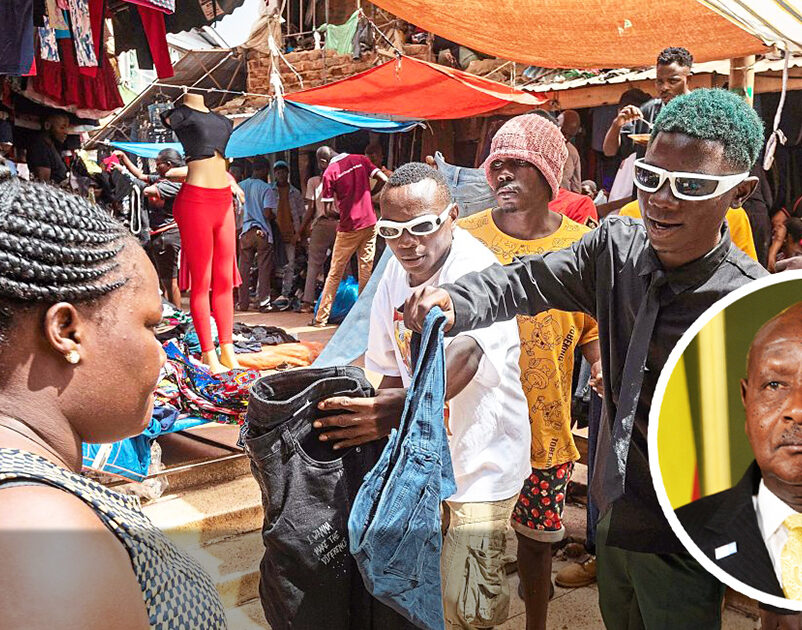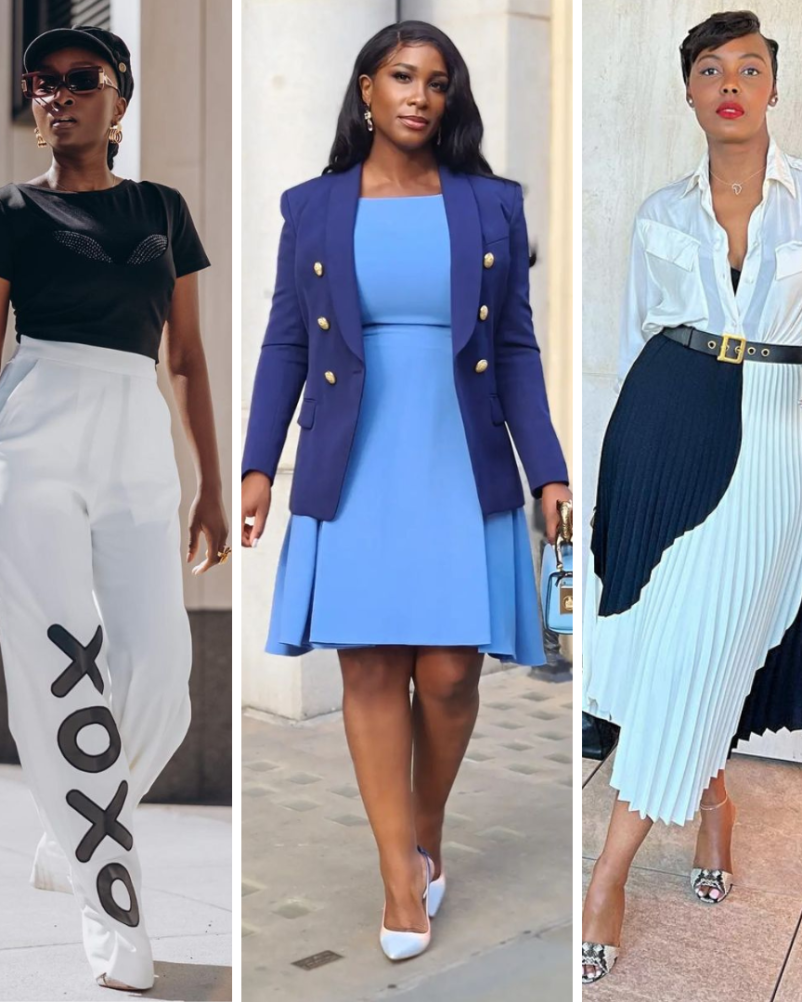
If You Like This Article Kindly Give Us A Share!
For three decades, Owino second-hand market in Kampala has been a hub for business in clothes dumped on Africa by Western nations. However, a potential government ban on used clothing sales is about to rearrange this. Established in 1971, the sprawling market employs around 80,000 people, with 70% being women. The government’s proposed ban on used clothing sales, a move initiated by President Yoweri Museveni’s desire to promote African wear, and has been cheered by the clothing sector.

Vendors display second-hand clothes to a buyer inside a market in Kampala on October 7, 2023. Ugandan President Yoweri Museveni announced a ban on the importation of used clothing into Uganda to be effective from September, claiming it affects the development of the local textile industries and stating that used clothes belonged to dead people. Uganda has traditionally imported large quantities of used clothing, which many Ugandans prefer due to its affordability. (Photo by BADRU KATUMBA / AFP)
The Owino market is not merely a place for inexpensive clothing; it is a significant economic contributor to the lives of many families. Shopkeepers argue that the trade benefits everyone, including the government, which receives taxes from sales. Estimates suggest that around one in three Ugandans, or approximately 16 million people, wear used clothing due to its affordability. A ban would force many Ugandans to choose between spending a significant portion of their income on new garments or going without, highlighting the economic impact on citizens.
East Africa imports a substantial portion of the world’s used clothing, providing jobs for approximately 355,000 people and generating $230 million annually. However, African governments have long criticized the importation of used clothes, citing the negative impact on domestic textile industries. President Museveni’s war on second-hand clothes aims to promote African wear and reduce reliance on imported garments, emphasizing the need for national identity. Despite the environmental benefits of reusing items, the debate revolves around the economic consequences and the potential loss of duty-free access to US markets.

Sellers offering second-hand clothes wait for costumers at a market in Kampala on October 7, 2023. Ugandan President Yoweri Museveni announced a ban on the importation of used clothing into Uganda to be effective from September, claiming it affects the development of the local textile industries and stating that used clothes belonged to dead people. Uganda has traditionally imported large quantities of used clothing, which many Ugandans prefer due to its affordability. (Photo by BADRU KATUMBA / AFP)
As Uganda’s state minister for trade, David Bahati, frames the debate as a matter of “dignity,” the government is considering potential incentives for investors to support a shift toward producing new garments locally. However, the proposed ban is not new, having been considered in 2016. Diplomatic and economic factors complicated its implementation, with opposition from traders’ associations and the East African Community’s unity fracturing. The geopolitical implications and the potential loss of duty-free access to US markets played a significant role in the region’s stance, illustrating the complex interplay of economic considerations, environmental impacts, and national identity in Uganda’s second-hand clothing dilemma.
Read More Like This On
UPCOMING TOP EVENTS!
AFRICAS BIGGEST FASHION WEEK IS HERE!

To Submit stories Email: [email protected] or HashTag #FashionGHANA
Source link




